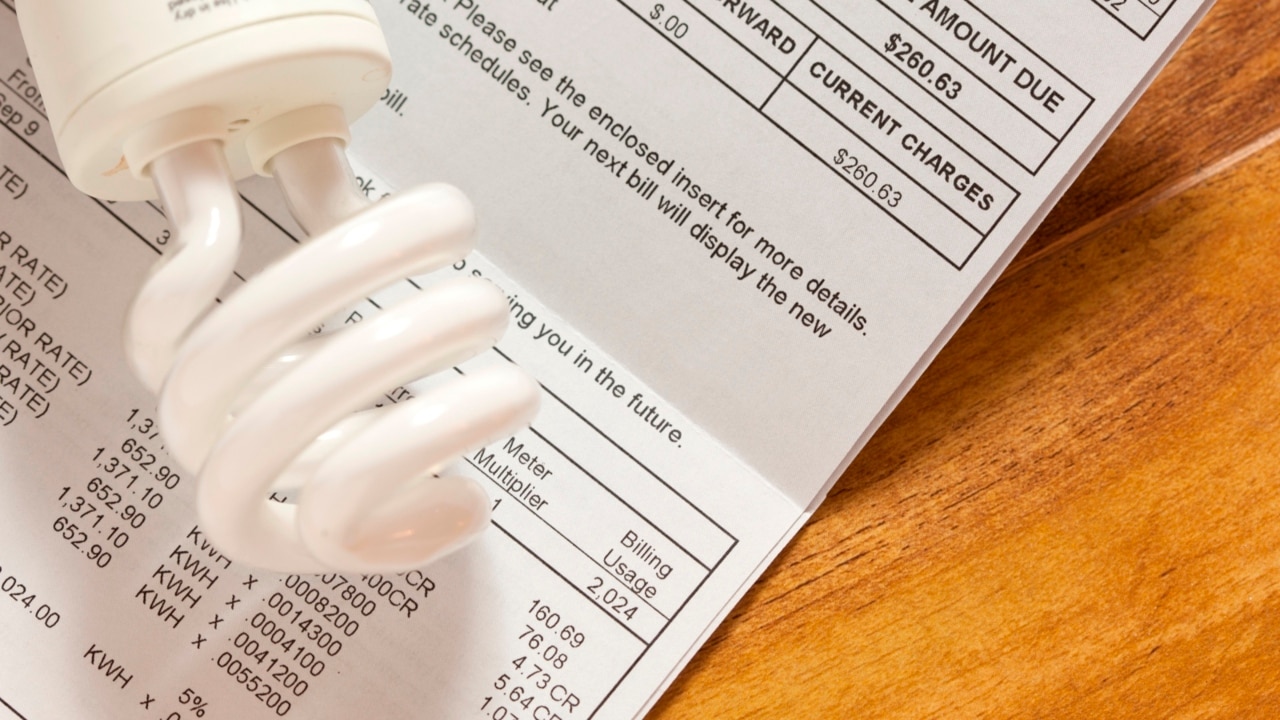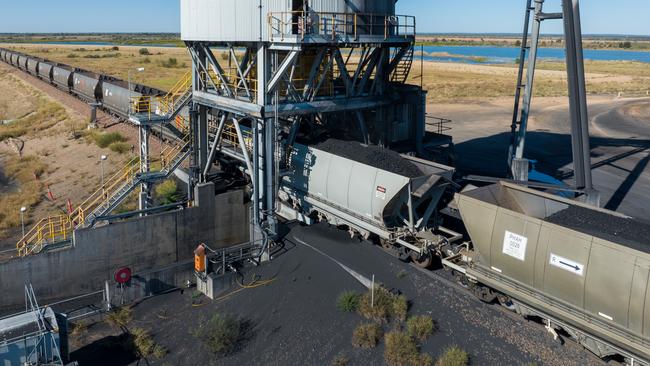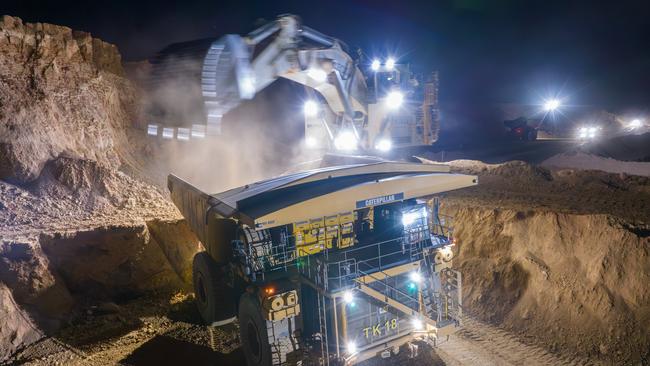Adani-owned coal mine hits export milestone but company posts $368m loss
Record coal prices helped Australian miners to record profits – but the most controversial coal mine in the country still posted a big loss this year.

Australia’s most controversial coal mine has reached a major milestone, with Bravus’s Carmichael operation exporting its 10 millionth tonne of coal – but the company still plunged to a $365.7m loss last year despite record coal prices in 2022.
The company’s accounts, filed with the corporate regulator, showed $232.9m of that loss was due to foreign exchange movements, with the bulk of that figure related to changes in the value of its $2.7bn worth of US-dollar denominated loans, which inflated in value as the Aussie dollar fell against the greenback.
But the mine, which cost about $2.5bn to build, still booked a $132.8m operating loss for the year, with the Bravus-owned haulage company that moves its coal to port booking a $16.7m operating loss for the year.
The controversy over the construction of Carmichael helped deliver government to former Prime Minister Scott Morrison in 2019, amid protests over the approval of the Adani-owned thermal coal mine that led to a backlash in regional Queensland seats.
The heat has largely died out from that protest movement as the mine moved towards its first exports. Bravus – the trading name of the Adani Mining, which owns the mine – says the last direct protest action against Carmichael was in December 2021, a month before the company exported its first coal to the market.
Bravus chief operating officer Mick Crowe said Carmichael was now just one of Queensland’s many coal mines, with its management team getting on with the job of delivering the promised regional jobs and exports.
Mr Crowe, who has been running the operation for a year, said the controversy surrounding the mine was “not a big part of my day” – nor for its 1100-strong workforce, the bulk of whom fly in to the remote mine from Townsville, Rockhampton, Mackay and Cairns. Bravus also runs its own rail company to haul Carmichael coal to the Abbot Point port terminal, which employs another 150 people.

“Our people are just engaged – they’re happy to come and get the work. It’s more about jobs and economic activity and livelihood. That’s the winning formula and you’ve just got to bat through that other stuff when it comes up,” he said.
Mr Crowe said Carmichael was closing in on its nameplate 10 million tonne a year export rate, with the focus on hitting its monthly targets and bringing down operating costs as the coal price returns to long-term levels.
From the first exports in January 2022, the ramp-up to full production rates will have taken about 18 months – relatively fast by mining industry standards, according to Mr Crowe, and a testament to the hard work put in by the company’s contractors and their workforce.
“I’ve only been on board for 12 months and a lot of the good work was done before me. But to get that performance and put out 10 million tonnes in that time – it’s fantastic,” he said.
“For our team, the contractors and that community – it hasn’t been easy, but here we are putting a big number on it. We’re stoked, and it’s delivering for the people in the communities that backed the mine.”
Carmichael produces relatively low-grade product compared to its peers in the NSW Hunter Valley, exporting coal with a calorific value of 5000 to 5400 kilocalories per kilogram – well below the 6000 of top quality NSW coal.
But the open cut mine only has to move four tonnes of waste rock to access a tonne of coal – well below the 10 to one ratio or higher of other Queensland coking coal mines.
That will make Carmichael cheaper to run over its life – its 880 million tonne reserve gives Carmichael a run of at least 40 to 50 years.

Adani Mining booked a big loss for the year, despite record coal pricing in 2022.
In the 12 months to the end of March it is believed to have exported about six million tonnes of coal.
It was paid $885.7m by its customers, with $122.9m of that coming from related parties and the rest from third-party buyers in Asia and India. That implies revenue of about $148 a tonne through the year.
Few mines make a profit in their first year of operation, but Adani’s loss came amid pricing that boosted other coal exporters to record profits in 2022.
Prices for premium NSW coal peaked at records around $US450 a tonne in early September, but figures from Argus Media – which tracks Australian coal pricing – show lower-grade coal pricing did not follow the same trend.
Prices for 5500 kilocalories per kilogram thermal coal peaked at $US287 a tonne in March 2022, just after Russia’s invasion of Ukraine put a rocket under global energy prices. But they fell rapidly after a brief peak, and traded around $US200 a tonne for the next six months.
Carmichael would have missed the peak pricing, given the mine was only ramping up in March, and its lower grades would have attracted a discount to the 5500 index.
Despite the statutory loss, Carmichael still generated $280.3m in net cash from its operations – offset by the $259.3m it spent on capital works at the mine through the period.
The company paid $65.1m to the Queensland government in the year.





To join the conversation, please log in. Don't have an account? Register
Join the conversation, you are commenting as Logout